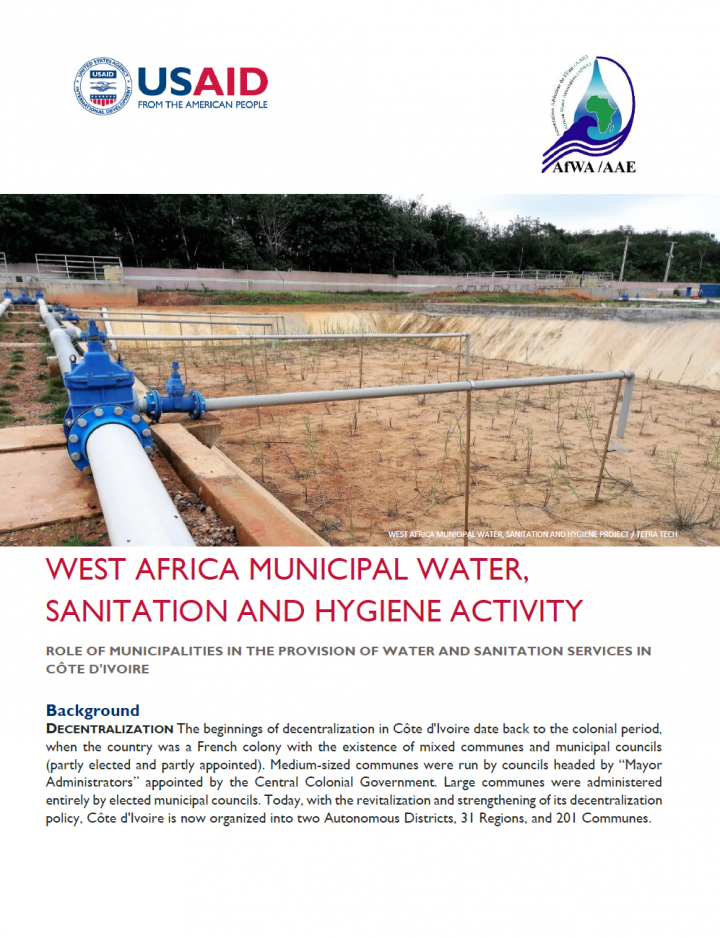West Africa Municipal Water, Sanitation and Hygiene Activity (in English and French) - Role of municipalities in the provision of water and sanitation services in Côte d'ivoire
USAID, AAE (2021)

Published in: 2021
Pages: 5
Publisher:
USAID, AAE
Author:
USAID, AAE
Uploaded by:
SuSanA Admin
Partner profile:
common upload
793 Views
12 Downloads
DECENTRALIZATION The beginnings of decentralization in Côte d'Ivoire date back to the colonial period, when the country was a French colony with the existence of mixed communes and municipal councils (partly elected and partly appointed). Medium-sized communes were run by councils headed by “Mayor Administrators” appointed by the Central Colonial Government. Large communes were administered entirely by elected municipal councils. Today, with the revitalization and strengthening of its decentralization policy, Côte d'Ivoire is now organized into two Autonomous Districts, 31 Regions, and 201 Communes.
The organization and functions of local authority, the exercise of supervision, and the transfer of State competencies to decentralized authorities are the key elements of decentralization in Côte d'Ivoire. Unfortunately, over the years, the transfer of powers and extensions of powers to the municipalities has not been effective. This has undermined the vision of making local and regional authorities essential links in promoting local development and good governance, while anchoring democracy and correcting inequalities. Water and sanitation is one of the most severely affected sectors in terms of poor local investment and governance.
Bibliographic information
USAID, AAE (2021). West Africa Municipal Water, Sanitation and Hygiene Activity (in English and French) - Role of municipalities in the provision of water and sanitation services in Côte d'ivoire. USAID, AAE
Filter tags
Decentralised wastewater treatment (e.g. DEWATS) English Sub-Saharan Africa















